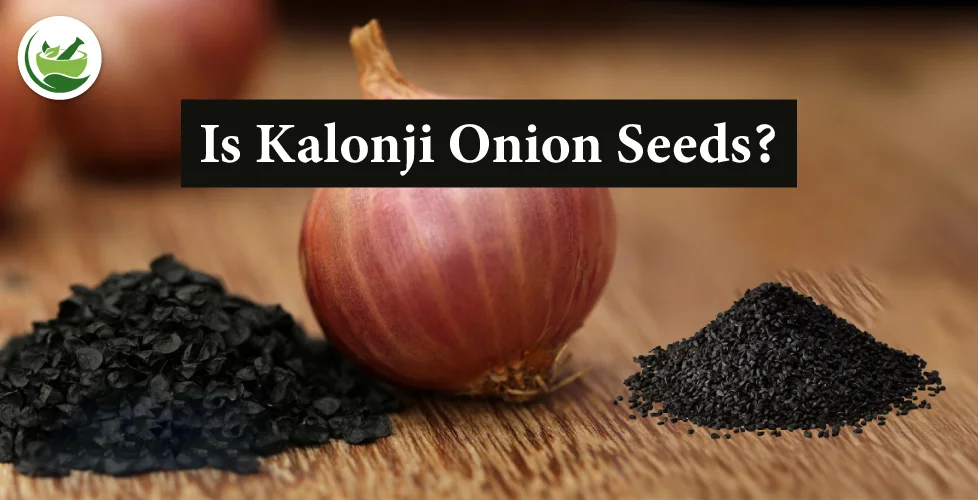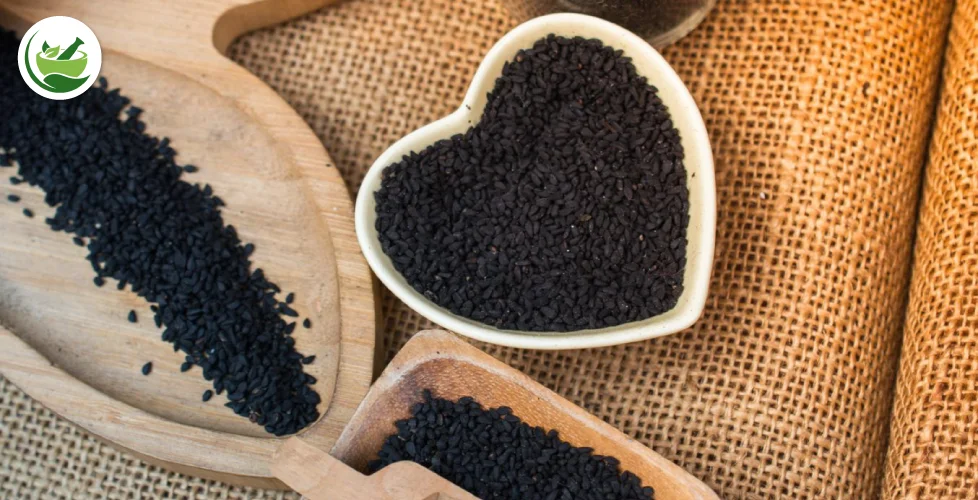Kalonji, also known as Nigella sativa, is a spice that has been cherished for centuries in various culinary and medicinal traditions. Despite its widespread use and recognition, there’s a common misconception that Kalonji is the same as onion seeds. This confusion often leads to incorrect usage and misunderstanding of the benefits and characteristics of these seeds. In this detailed blog, we will explore the origins, differences, and unique properties of Kalonji, addressing the myths and presenting the facts.
The Origins of Kalonji and Onion Seeds
The Origins of Kalonji and Onion Seeds: Kalonji, or Nigella sativa, is a flowering plant native to South and Southwest Asia, known for its small, black seeds with a rich history in culinary and medicinal use. In contrast, onion seeds are derived from the Allium cepa plant and are often mistaken for Kalonji despite being botanically distinct and less commonly used as a spice.
Related blog How to Use Kalonji Seeds for Glowing Skin and Hair
Kalonji (Nigella sativa)
Kalonji, or Nigella sativa, is a flowering plant native to South and Southwest Asia.The plant produces small black seeds, commonly known as Kalonji, black cumin, or black seed. People have used these seeds for thousands of years, dating back to ancient Egypt, where they were discovered in the tomb of Pharaoh Tutankhamun. Often called “the seed of blessing,” Kalonji is used in both culinary and medicinal applications.
Onion Seeds (Allium cepa)
Onion seeds come from the onion plant, a member of the Amaryllidaceae family. People often mistake onion seeds for Kalonji due to their similar appearance, but they are not the same. People do not typically use onion seeds as a spice in culinary practices, and they are not as commonly recognized for their medicinal properties. The seeds are small, black, and have a slightly pungent flavor, but they lack the aromatic complexity of Kalonji.
Related blog kalonji seeds benefits for hairs: Boost Growth and Shine Naturally
The Myth: Kalonji as Onion Seeds
The misconception that Kalonji is the same as onion seeds likely stems from the visual similarity between the two. Both seeds are small and black, which can lead to confusion, especially in regions where the term “onion seed” is used colloquially to refer to Kalonji. However, this is a misnomer, as Kalonji and onion seeds come from entirely different plants and have distinct culinary and medicinal uses.
Related blog How to Use Kalonji Seeds for Hair Health

The Facts: Distinguishing Kalonji from Onion Seeds
To clarify the differences between Kalonji and onion seeds, let’s explore their characteristics in detail:
Botanical Classification
- Kalonji: Belongs to the Ranunculaceae family. The plant produces small, black, tear-shaped seeds.
- Onion Seeds: Belong to the Amaryllidaceae family. These seeds are derived from the onion plant, known scientifically as Allium cepa.
Appearance
- Kalonji: The seeds are small, black, and crescent-shaped with a slightly rough texture.
- Onion Seeds: Similar in size and color, but usually rounder and smoother than Kalonji seeds.
Flavor Profile
- Kalonji: Offers a complex flavor, often described as a blend of onion, black pepper, and oregano. It has a slightly bitter taste with a warm, nutty aroma.
- Onion Seeds: Possess a more straightforward, pungent flavor that is less aromatic and more bitter compared to Kalonji.
Culinary Uses:
- Kalonji: Widely used in Indian, Middle Eastern, and North African cuisines. Kalonji plays a key role in spice blends like panch phoron, and people commonly sprinkle it on breads like naan and add it to pickles and curries.
- Onion Seeds: Less commonly used as a spice. You might occasionally use them in baking or as a garnish, but they don’t play a significant role in any major cuisine.
Medicinal Properties:
- Kalonji: Renowned for its health benefits, including anti-inflammatory, antioxidant, and antimicrobial properties. Traditional medicine uses it to treat a range of conditions, from digestive disorders to respiratory issues.
- Onion Seeds: While they may offer some health benefits, they are not as extensively studied or used in traditional medicine as Kalonji.
Related blog How to Use Kalonji Seeds for Hair Growth and Stronger Hair
Health Benefits of Kalonji
Kalonji seeds are prized not only for their flavor but also for their extensive medicinal properties. Here are some of the well-known health benefits:

Anti-inflammatory and Antioxidant:
- Kalonji seeds are rich in antioxidants, which help combat oxidative stress and inflammation in the body. The active compound thymoquinone has been studied for its potential to reduce inflammation and protect against chronic diseases.
Digestive Aid:
- Kalonji is often used to treat digestive issues such as bloating, indigestion, and constipation. It can help stimulate digestion and relieve discomfort.
Immune System Support:
- Researchers have well-documented Kalonji’s immune-boosting properties. People believe these seeds enhance the body’s immune response, making them a popular remedy during cold and flu seasons.
Skin and Hair Health:
- Kalonji oil is used topically for skin and hair care. It can help moisturize the skin, reduce acne, and promote hair growth by strengthening hair follicles.
Blood Sugar Regulation:
- Some studies suggest that Kalonji may help regulate blood sugar levels, making it potentially beneficial for people with diabetes.
Related blog Simple Tips on How to Eat Kalonji Seeds Daily for Health Benefits
Conclusion
It’s a common misconception that Kalonji is the same as onion seeds, and this myth needs to be addressed. While both are small, black seeds, they come from different plants and have distinct uses and benefits. Kalonji, with its rich history, unique flavor, and numerous health benefits, stands apart from onion seeds.
Next time you encounter a recipe calling for Kalonji or come across discussions about its health benefits, you can confidently distinguish it from onion seeds. Embrace Kalonji’s true nature to deeply appreciate its role in culinary and medicinal traditions, ensuring that this “seed of blessing” reaches its fullest potential.






